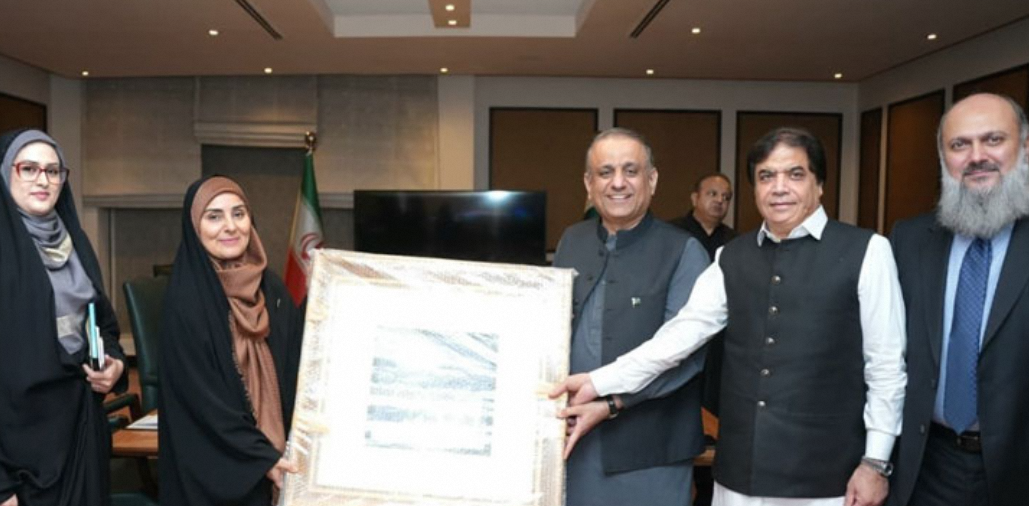
Pakistan and Iran Forge Stronger Ties Through Silk Road and Gwadar-Chabahar Connectivity
Strategic Agreement to Enhance Regional Economic Integration
Pakistan and Iran have taken a significant step toward deepening regional economic cooperation by agreeing to connect the historic Silk Road with the Gwadar to Chabahar projects. This move marks a major milestone in efforts to foster greater economic and trade integration in South and Central Asia, paving the way for improved connectivity and the expansion of cross-border commerce.
High-Level Talks Bolster Bilateral Relations
The breakthrough agreement emerged during a high-level meeting in Islamabad, attended by Iranian Minister for Roads and Urban Development, Farzaneh Sadegh, who was accompanying the Iranian President on an official state visit to Pakistan. The session included Pakistan’s key federal ministers: Abdul Aleem Khan (Communications), Jam Kamal Khan (Commerce), and Hanif Abbasi (Railways). The discussions emphasized the historical friendship between the two neighboring countries and the shared vision of prosperity through interconnected infrastructure.
Connecting the Silk Road with Modern Maritime Corridors
Iran expressed its intent to join the Silk Road initiative currently championed by Pakistan and China, linking it to the ambitious China-Pakistan Economic Corridor (CPEC). The focal point of the talks was the strategic Gwadar-Chabahar project, which aims to connect Pakistan’s Gwadar Port with Iran’s Chabahar Port. This linkage is expected to transform the regional maritime trade landscape, offering new opportunities for both countries and their trading partners.
By integrating the Silk Road with modern maritime corridors, both sides aim to revitalize ancient trade routes and enable seamless movement of goods across borders. The enhanced connectivity is likely to attract investments, stimulate economic growth, and solidify the region’s significance in global trade routes.
Focus on Transportation Infrastructure and Connectivity
The meeting highlighted the importance of upgrading road infrastructure and expanding the transportation network between Pakistan and Iran. Iranian Minister Farzaneh Sadegh called for an increase in the number of commercial vehicles operating between the two countries and emphasized modernizing the existing Quetta-Zahedan route, a critical land link.
Federal Minister for Communications Abdul Aleem Khan echoed these views and proposed the creation of bilateral working groups to accelerate the execution of agreed projects. The development of these road and rail corridors is seen as essential for reducing logistical bottlenecks and making cross-border transit more efficient.
Strengthening Maritime and Rail Links
Pakistan’s Federal Minister for Railways, Hanif Abbasi, reaffirmed the country’s commitment to further develop regional rail connectivity. He referenced ongoing plans to review and upgrade the Islamabad-Tehran-Istanbul Railway Project, which holds immense potential for linking South Asia with Europe via Iran and Turkey. Additionally, the Quetta-Zahedan Railway Line will be upgraded and expanded, enhancing both passenger and freight movement.
These initiatives are expected to boost not only bilateral trade but also the transit potential for goods destined for other regions, offering landlocked Central Asian states new routes to global markets.
Expanding Trade Opportunities and Promoting Economic Growth
Federal Minister for Commerce Jam Kamal Khan outlined the substantial untapped trade potential between Pakistan and Iran. Stressing the need to diversify trade beyond traditional sectors, he urged both countries to explore new avenues for commerce, investment, and joint ventures. Improved transport and logistical links are expected to facilitate increased trade volume and provide both countries with access to each other’s markets.
By leveraging their geographic proximity and complementary resources, Pakistan and Iran are well positioned to become major trading hubs in the region. The agreement to strengthen trade and connectivity also aligns with broader regional integration goals, benefiting neighboring countries and fostering stability through economic interdependence.
Diplomatic Solidarity and Regional Collaboration
During the talks, Pakistan’s Minister for Communications expressed solidarity with Iran regarding its firm stance against Israel, framing it as a source of pride for the wider Muslim world. In return, the Iranian delegation expressed deep appreciation for Pakistan’s diplomatic support and extended goodwill to the people of Pakistan.
The meeting concluded with an invitation for the Iranian Minister to participate in the upcoming Ministerial Conference in Pakistan, which will bring together representatives from 20 countries to discuss regional cooperation and integration.







